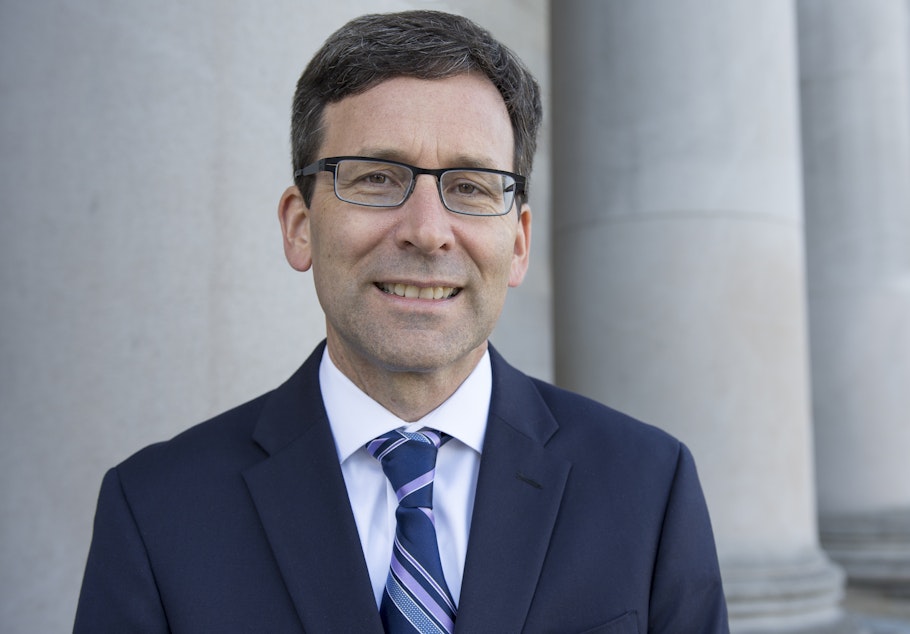Washington AG urges legislators to 'move away from a war on drugs'

Washington Attorney General Bob Ferguson is urging legislators to move forward with drug decriminalization proposals rather than reinstating criminal penalties for drug use.
In an interview Monday, Ferguson said legislators should seize the opportunity presented by the state supreme court’s “Blake” decision. In February, the court found Washington’s felony drug possession law unconstitutional.
“I’m hoping the next step is for Washington to change course and move away from a war on drugs that has utterly failed and try a new approach,” he said. “And that new approach is to eliminate the criminal penalties associated with possessing a non-commercial amount of drugs. And I’m hopeful that the state Legislature will take that bold but necessary step.”
In the final days of this session, legislators must determine whether to recriminalize “knowing” possession of small amounts of drugs, make it a civil infraction, or focus entirely on recovery and treatment services. Some local jurisdictions have started to pass their own ordinances with criminal penalties, but these will be preempted if state legislation passes.
Ferguson said he was disappointed that the Washington state Senate passed a bill Friday making drug possession a gross misdemeanor.
“That’s a half step at best,” he said. “And frankly, leaves us still in the criminal justice system for an issue that is a public health challenge. And doesn’t solve our problems with racial inequities in the prosecution of drug cases in our state and across the country, and doesn’t get to the underlying problems that exist.”
Sponsored
Ferguson said decriminalization should result in a reduced caseload so that court funding could be redirected toward substance use recovery.
Ferguson may be the first statewide attorney general in the country to advocate for decriminalization, the approach in effect in Portugal and, last November, enacted by voters in Oregon.
“I’m not aware of any of my colleagues that support the position I’m taking at this time,” he said. “But I suspect in five years, 10, 15 years, other state officials will be supportive of what I think will happen here in Washington.”
The House Appropriations Committee heard testimony Monday on the Senate’s bill making drug possession a gross misdemeanor. Redmond mayor Angela Birney told legislators that a court order was key in persuading her own daughter to seek help.
“It was not until the criminal justice system forced her into treatment that she was able to recover from addiction,” Birney said.
Sponsored
But Riall Johnson, testifying on behalf of the Snohomish Ebony PAC, said any criminal penalty will be applied disproportionately to Black people.
“The Supreme Court made a landmark decision that’s finally giving us a chance to end the drug war, and here you are restarting it with even more options for police to criminalize us with,” he said.
Another proposal would make drug possession a misdemeanor for the next two years, while phasing in a civil penalty alternative, and expanding recovery services. The legislative session is scheduled to end Sunday April 25.




